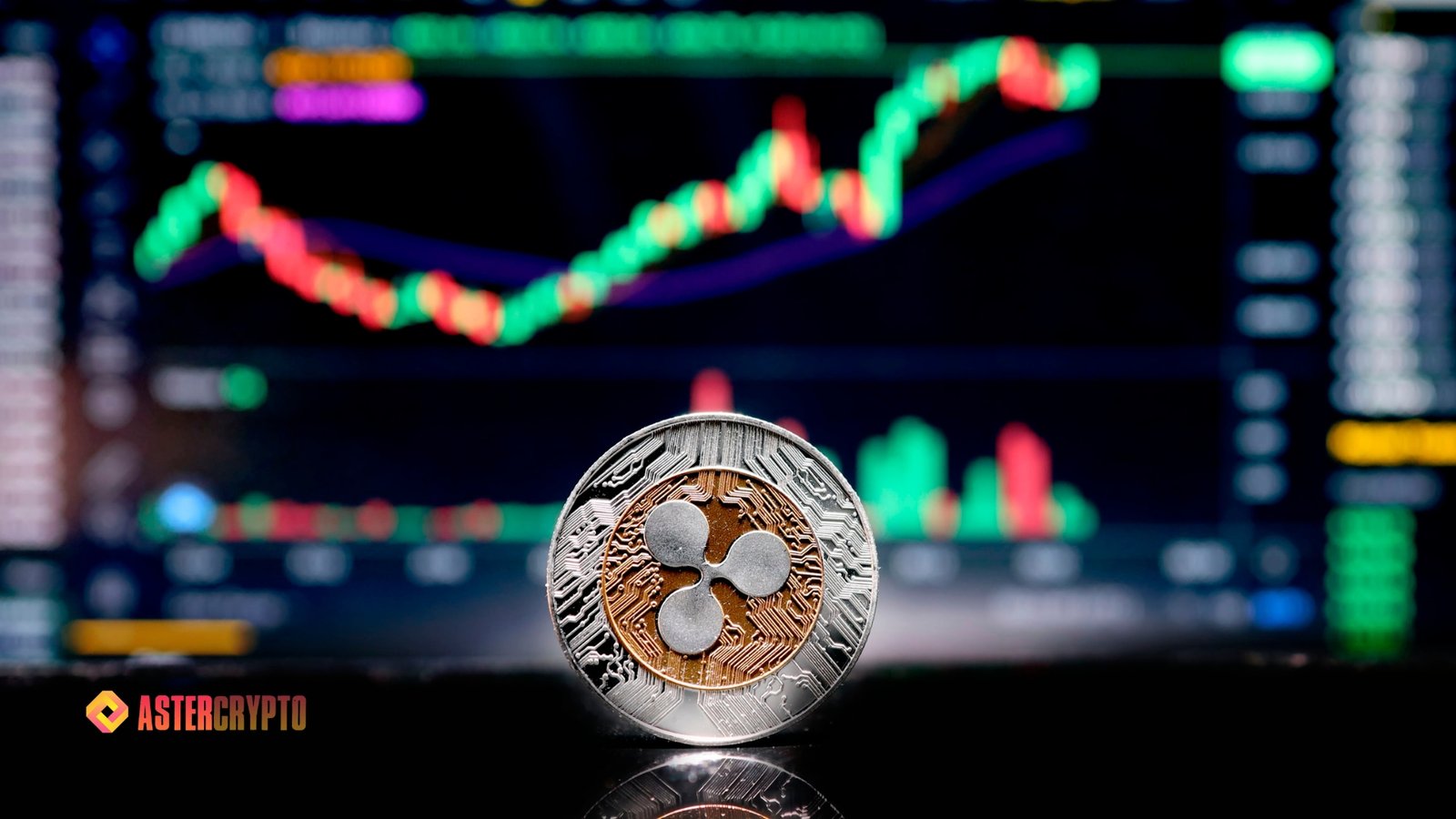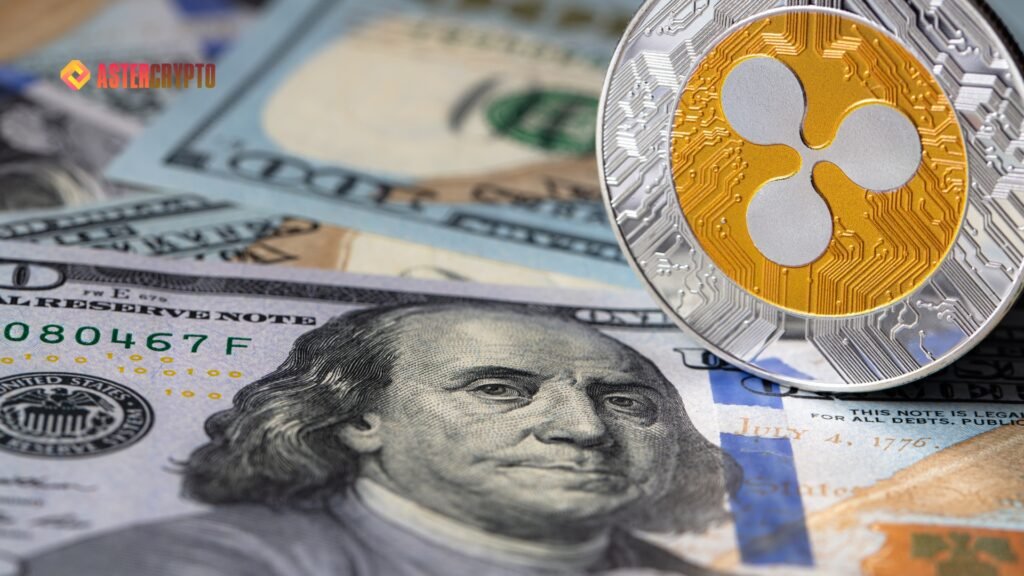XRP lawsuit: For several years, the cryptocurrency community has been engrossed in the legal drama surrounding Ripple Labs and its digital asset, XRP. The entire cryptocurrency market is deeply affected by the XRP litigation, which mainly concerns the classification of XRP as a security. Please read up on the case to keep up with its history, main arguments, and possible effects on XRP and other digital assets.
Background of the XRP Lawsuit
Ripple Labs, its CEO Brad Garlinghouse, and co-founder Chris Larsen were all named in a December 2020 SEC complaint that kicked off the XRP case. After Ripple raised more than $1.3 billion through the sale of XRP tokens, the SEC claimed that the company had engaged in an unregistered securities offering. The issue here is whether or not U.S. law classifies XRP as a security, necessitating that Ripple receives the SEC’s approval for the token sale.
The Howey Test, a legal requirement for investment contracts, helps the SEC prove a transaction is a security. The Howey Test defines security as an investment in a joint enterprise with the expectation of returns from others’ efforts. The SEC says it meets these requirements since Ripple’s marketing and ecosystem growth drove XRP’s value.
In contrast, Ripple has strongly refuted the SEC’s claims, maintaining that XRP is just a digital currency like Bitcoin and Ethereum, not a security. Since XRP is decentralized and serves as a medium of trade, Ripple argues that it should not be considered a security. In addition, the business claims that the SEC should have given reasonable notice that XRP would be a security, citing the agency’s earlier remarks indicating that cryptocurrencies like Bitcoin and Ethereum are not securities.
Key Developments in the XRP Lawsuit

Since the litigation began, many key events have affected its course. The court’s order giving Ripple access to SEC discussions and documents on XRP, Ethereum, Bitcoin, and Ethereum was crucial. Ripple asked. These records support its fair notice position that the SEC’s uneven and vague digital asset instructions weaken its case.
A success for Ripple was the September 2021 court order requiring the SEC to provide papers about its deliberations on digital assets. The records, which include internal conversations and memoranda, may show how the SEC arrived at its decisions and reveal whether or not the agency ever viewed XRP as a security.
The July 2023 SEC summary judgment ruling was also significant. The judge found that Ripple sold XRP to institutions violating securities laws. However, they partially upheld the claim that exchange sales to individual investors were not unregistered securities offerings. This ruling gave Ripple a huge win. It hinted that not all XRP transactions are required to conform to securities rules, which rippled across the cryptocurrency market.
The court’s decision also concerns the SEC’s strategy for overseeing digital assets. The judge’s decision to treat XRP sales by institutions differently from those by individual customers was demonstrated. The difficulty of transferring conventional securities rules to digital assets. It raised the possibility that a more sophisticated regulatory structure is required.
Implications for XRP and the Crypto Industry
The cryptocurrency sector is deeply affected by the XRP lawsuit‘s decision. If the court upholds the SEC’s classification of XRP as a security, there may be less room for innovation in the cryptocurrency market. This might lead to stricter regulations and more oversight of other digital assets. If securities rules are applied broadly, crypto ventures may become more difficult to acquire funds by selling tokens.

The court’s ruling favoring Ripple may encourage other cryptocurrency startups to contest the SEC’s authority and demand more transparent laws. Industry debate about more comprehensive and explicit digital asset rules has begun following the case. Leading personalities in the cryptocurrency market have encouraged politicians to implement new legislation due to the unique nature of digital assets.
The XRP litigation has also significantly affected its market value. After the SEC’s original filing, the coin’s value dropped precipitously because major exchanges like Kraken and Coinbase stopped dealing with XRP because of regulatory uncertainties. However, the partial victory in July 2023 boosted XRP because investors thought Ripple might win the case.
Despite the continuing legal dispute, Ripple has continued to grow its company and develop the XRP ecosystem. The company’s efforts have centered on fostering relationships with banks and encouraging the use of XRP for international money transfers. Despite legal hurdles, Ripple’s On-Demand Liquidity (ODL) service, which employs XRP as a medium of exchange for cross-border transactions, has been popular in several markets.
Looking Ahead: The Future of XRP and Regulation
The cryptocurrency market will watch the XRP litigation closely for any new information that could change the final verdict. The court may take months or perhaps years to make a final decision, and if the verdict is unfavorable, Ripple and the SEC can both appeal.
However, the case has brought attention to clarifying cryptocurrency regulations. Companies and investors are feeling the jitters due to the absence of consensus on correctly categorizing and regulating digital assets. Several industry watchers hope the XRP lawsuit will force politicians to fill the current regulatory framework’s loopholes.
What happens in the litigation will significantly affect Ripple’s future. If the verdict is in Ripple’s favor, the company can continue operating without worrying about regulatory action. If the decision is against Ripple, the company could face heavy fines and reevaluate its business strategy. No matter what happens in the XRP litigation, it will undoubtedly be a watershed moment. That influences how the US government will handle cryptocurrency regulation.
Read More: Ripple SEC Case: Lawyers Explain XRP Lawsuit Appeals
Summary
There has never been a more critical time for the cryptocurrency sector than the XRP Case. Which might change how digital assets are seen and governed. The case’s developments will have far-reaching effects on the cryptocurrency market, impacting the moves made by businesses, investors, and authorities.
FAQs
Q1. What is the main issue at the center of the XRP lawsuit?
Ans: The XRP lawsuit centers on whether U.S. law classifies XRP as a security. The SEC claims Ripple Labs sold XRP in an unregistered securities offering, raising approximately $1.3 billion. Ripple says XRP is a digital currency like Bitcoin and Ethereum, not a security. This classification determines the court outcome and affects the bitcoin sector.
Q2. What are the potential consequences if XRP is classified as a security?
Ans: A court ruling that XRP is a security could create a precedent for other digital assets, increasing cryptocurrency sector regulation. Ripple might be fined heavily, and XRP and comparable token users may face tighter rules. More exchanges delisting XRP could lower its liquidity and market value. However, a Ripple victory might boost its market share and motivate other crypto companies to fight the SEC’s regulatory approach.
Q3. How has the XRP lawsuit affected the price and trading of XRP?
Ans: XRP’s price and trading volume have suffered from the litigation. After the SEC’s December 2020 filing, XRP’s value fell, and Coinbase and Kraken ceased trading due to legal ambiguity. However, a partial court verdict in July 2023 that distinguished institutional and retail XRP sales bolstered its price as a positive move for Ripple. XRP is a commonly traded digital asset with a fluctuating market value due to litigation.

